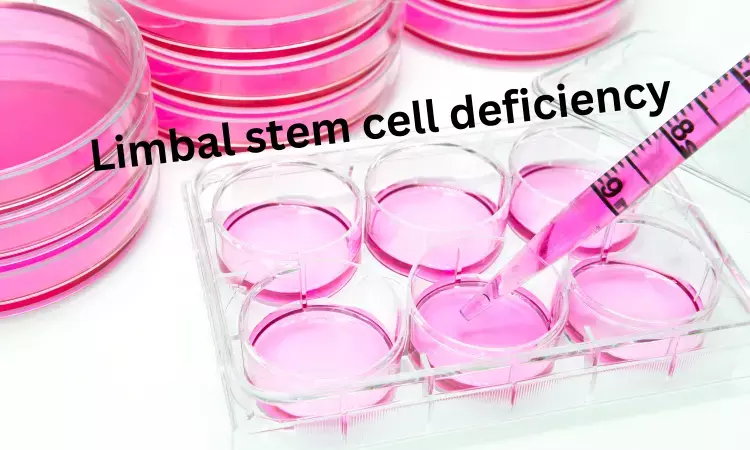- Home
- Medical news & Guidelines
- Anesthesiology
- Cardiology and CTVS
- Critical Care
- Dentistry
- Dermatology
- Diabetes and Endocrinology
- ENT
- Gastroenterology
- Medicine
- Nephrology
- Neurology
- Obstretics-Gynaecology
- Oncology
- Ophthalmology
- Orthopaedics
- Pediatrics-Neonatology
- Psychiatry
- Pulmonology
- Radiology
- Surgery
- Urology
- Laboratory Medicine
- Diet
- Nursing
- Paramedical
- Physiotherapy
- Health news
- Fact Check
- Bone Health Fact Check
- Brain Health Fact Check
- Cancer Related Fact Check
- Child Care Fact Check
- Dental and oral health fact check
- Diabetes and metabolic health fact check
- Diet and Nutrition Fact Check
- Eye and ENT Care Fact Check
- Fitness fact check
- Gut health fact check
- Heart health fact check
- Kidney health fact check
- Medical education fact check
- Men's health fact check
- Respiratory fact check
- Skin and hair care fact check
- Vaccine and Immunization fact check
- Women's health fact check
- AYUSH
- State News
- Andaman and Nicobar Islands
- Andhra Pradesh
- Arunachal Pradesh
- Assam
- Bihar
- Chandigarh
- Chattisgarh
- Dadra and Nagar Haveli
- Daman and Diu
- Delhi
- Goa
- Gujarat
- Haryana
- Himachal Pradesh
- Jammu & Kashmir
- Jharkhand
- Karnataka
- Kerala
- Ladakh
- Lakshadweep
- Madhya Pradesh
- Maharashtra
- Manipur
- Meghalaya
- Mizoram
- Nagaland
- Odisha
- Puducherry
- Punjab
- Rajasthan
- Sikkim
- Tamil Nadu
- Telangana
- Tripura
- Uttar Pradesh
- Uttrakhand
- West Bengal
- Medical Education
- Industry
Stem cell-based therapies novel strategy that may substitute conventional corneal transplantation

Major advances in medicine are currently being made in regenerative medicine for cornea. Stem cell-based therapies represent a novel strategy that may substitute conventional corneal transplantation, albeit there are many challenges ahead given the singularities of each cellular layer of the cornea.
A recent study in Science Advances aimed to treat unilateral limbal stem cell (LSC) deficiency, Ula V. Jurkunas and the team of researchers, developed cultivated autologous limbal epithelial cells (CALEC) using an innovative xenobiotic-free, serum-free, antibiotic-free, two-step manufacturing process for LSC isolation and expansion onto human amniotic membrane with rigorous quality control in a good manufacturing practices facility.
The current study if successful, will be the first to use of CALEC in the United States will serve as a steppingstone for establishing cellular therapy products as viable options for patients with LSCD.
The clinical hallmarks of LSC deficiency (LSCD) include conjunctivalization, neovascularization, recurrent or persistent epithelial defects, inflammation, and corneal scarring. These changes lead to loss of vision, pain, and impaired quality of life.
Limbal biopsies were used to generate CALEC constructs, and final grafts were evaluated by noninvasive scanning microscopy and tested for viability and sterility. Cultivated cells maintained epithelial cell phenotype with colony-forming and proliferative capacities. Analysis of LSC biomarkers showed preservation of “stemness.”
After preclinical development, a phase 1 clinical trial enrolled five patients with unilateral LSC deficiency. Four of these patients received CALEC transplants, establishing preliminary feasibility. Clinical case histories are reported, with no primary safety events. On the basis of these results, a second recruitment phase of the trial was opened to provide longer term safety and efficacy data on more patients.
In summary, the initial phase of this trial has established feasibility of the product manufacturing method with no immediate safety concerns, enabling a second recruitment phase to provide longer term safety and efficacy data on more patients. Use of the small biopsy carries low risk of inducing LSCD in the donor eye, as seen in one example showing the repeatability of the CALEC procedure.
Reference: urkunas UV, et al "Cultivated autologous limbal epithelial cell (CALEC) transplantation: Development of manufacturing process and clinical evaluation of feasibility and safety" Sci Adv 2023; DOI: 10.1126/sciadv.adg6470.
MSc. Neuroscience
Niveditha Subramani a MSc. Neuroscience (Faculty of Medicine) graduate from University of Madras, Chennai. Ambitious in Neuro research having worked in motor diseases and neuron apoptosis is interested in more of new upcoming research and their advancement in field of medicine. She has an engrossed skill towards writing and her roles at Medical dialogue include Sr. Content writer. Her news covers new discoveries and updates in field of medicine. She can be reached at editorial@medicaldialogues.in
Dr Kamal Kant Kohli-MBBS, DTCD- a chest specialist with more than 30 years of practice and a flair for writing clinical articles, Dr Kamal Kant Kohli joined Medical Dialogues as a Chief Editor of Medical News. Besides writing articles, as an editor, he proofreads and verifies all the medical content published on Medical Dialogues including those coming from journals, studies,medical conferences,guidelines etc. Email: drkohli@medicaldialogues.in. Contact no. 011-43720751


